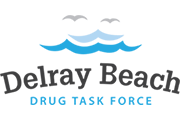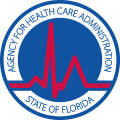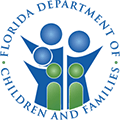Although the consumption of alcohol is a widely accepted practice for most adults, there are some instances in which that consumption becomes problematic. When individuals begin to drink alcohol in such excessive amounts or at such intense frequencies that it begins to hinder their ability to function appropriately on a daily basis, an alcohol abuse problem has developed.
Understanding Alcohol Addiction
Understanding Alcohol Addiction
This type of problematic drinking pattern can be exceedingly difficult to overcome. Individuals often find that their consumption of alcohol has begun to take priority over things that were once important to them, including their jobs, their families, and their social lives. As a result, all areas of their lives suffer, often resulting in the development of feelings of hopelessness about their futures and feelings of helplessness to put an end to the destructive behavior. While it is a difficult battle to face, it is not one that has to be faced alone. There are treatment options available that can help stop the devastating pattern of alcohol abuse and help individuals return to happy, healthy lives, free from the grips of alcohol addiction.
Statistics
Alcohol Abuse Statistics
Alcohol is said to be one of the most commonly used of all addictive substances in the United States. According to the National Council on Alcoholism and Drug Dependence, Inc. (NCADD), approximately 17.6 million adults suffer from alcohol abuse and dependence, which is the equivalent of 1 in every 12 American adults. Of that 17.6 million people, the NCADD reports that more than half come from families with preexisting patterns of problematic drinking. Furthermore, it has been estimated that more than seven million children live in homes where at least one parent is abusing or has become addicted to alcohol.
Causes & Risks
Causes and Risk Factors for Alcohol Abuse
Researchers and professionals in the mental health and addiction fields agree that the following are causes and risk factors of alcohol addiction:
Genetic: There is a strong genetic link to the development of an addiction to alcohol. Individuals who have family members who struggled with alcohol abuse and addiction are at a greater risk for struggling with the same concerns than are those who do not share the same type of family history. More specifically, studies have shown that between 40% and 60% of an individual’s vulnerability to suffering from an alcohol use disorder lies in his or her genetic makeup.
Environmental: There are a number of environmental factors that can play a role in enhancing an individual’s susceptibility to an alcohol use disorder. For example, people who grow up in an environment where alcohol is frequently abused are at an increased risk for abusing the substance themselves, as they come to view alcohol consumption as an acceptable behavior. This is especially true in situations where individuals are exposed to others who use alcohol as a means of coping with stress. Additionally, individuals who have gone through traumatic experiences and do not possess sufficient coping resources often seek out a way to numb their negative emotions. In some cases, alcohol provides this desired numbing effect.
Risk Factors:
- Being male
- Family history of alcohol abuse and addiction
- Family history of addiction to other substances
- Family history of mental illness
- Personal history of mental illness
- Being the victim of abuse or neglect
- Suffering through a traumatic experience
- Lacking healthy coping skills
- Low self-esteem
Signs & Symptoms
Signs and Symptoms of Alcohol Abuse
When individuals are struggling with an alcohol abuse problem, the symptoms that they display will vary depending on the length of time that they have been abusing the substance, the amount of alcohol that they are regularly consuming, and the frequency at which they consume alcohol, as well as the individual’s overall state of health. Examples of various warning signs of alcohol abuse include:
Behavioral symptoms:
- Hiding alcohol
- Lying about one’s alcohol consumption
- No longer participating in activities that one once enjoyed
- Repeated absences from work
- Withdrawing from friends and family / social isolation
- Drinking alcohol alone
Physical symptoms:
- Flushed skin
- Disturbed sleeping patterns
- Sweating excessively
- Persistent headaches
- Distorted vision
- Tremors / shakes
- Nausea
- Vomiting
Cognitive symptoms:
- Decreased ability to use appropriate decision-making skills
- Decreased ability to use reason and sound judgment
- Lacking the ability to focus / concentration difficulties
- Memory impairment
Psychosocial symptoms:
- Heightened feelings of anxiety
- Feelings of depression
- Frequent changes in mood and temperament
- Excessive feelings of irritability and agitation
- Excessive and unwarranted anger
- Feelings of hostility
- Suicidal ideation
Effects
Effects of Alcohol Abuse
The continued abuse of alcohol can bring about countless negative effects on an individual’s life. Such effects will inevitably impact a person’s occupational, recreational, and social functioning, as well as cause turmoil within his or her home life. Specific examples of various effects that may result from prolonged alcohol abuse can include, but are not limited to, the following:
- Familial strife, including separation and divorce
- Disturbances within other important interpersonal relationships
- Frequent absences from work
- Failure to perform at the expected level occupationally, potentially resulting in job loss
- Long periods of unemployment
- Financial turmoil
Additionally, the longer that an individual continues to abuse alcohol, the more susceptible he or she is to experiencing adverse health effects as a result. Examples of such health effects can include:
- Weakened immune system
- Liver disease
- Heart disease
- Kidney disease
- Brain damage
Co-Occurring Disorders
Alcohol Abuse & Co-Occurring Disorders
It is common for individuals who are suffering from alcohol use disorder to suffer from symptoms of other mental health conditions simultaneously as well. Disorders that have been commonly cited as occurring alongside alcohol abuse and addiction include the following:
- Bipolar disorder
- Schizophrenia
- Anxiety disorders
- Depressive disorders
- Posttraumatic stress disorder
- Personality disorders
- Other substance use disorders
Withdrawal
Effects of Alcohol Withdrawal & Overdose
Effects of alcohol withdrawal: When alcohol is consumed in excessive amounts and for prolonged periods of time, and then that use suddenly ends, individuals may experience an extremely uncomfortable period of withdrawal. The symptoms of withdrawal will present differently in type and severity amongst various individuals, and the duration during which these symptoms are experienced will also vary. Examples of possible signs that may indicate that someone is going through withdrawal from alcohol can include the following:
- Intense cravings for alcohol
- Onset of flu-like symptoms
- Disorientation and confusion
- Increased heart rate
- Anxiety
- Irritability
- Hot and cold sweats
- Trembling
- Restlessness
Effects of alcohol overdose: Whenever individuals consume more alcohol than their bodies are capable of appropriately metabolizing, they are at risk for experiencing alcohol overdose, also frequently known as alcohol poisoning. When this happens, emergency medical attention should be sought in order to prevent a grave outcome. Potential signs that can be indicative of the fact that someone has overdosed on alcohol can include the following:
- Violent vomiting
- Labored breathing
- Poor motor control
- Delayed reflexes
- Slurred / incoherent speech
- Extreme confusion
- Unconsciousness / unresponsiveness
- Seizures
- Skin turning blue in color













